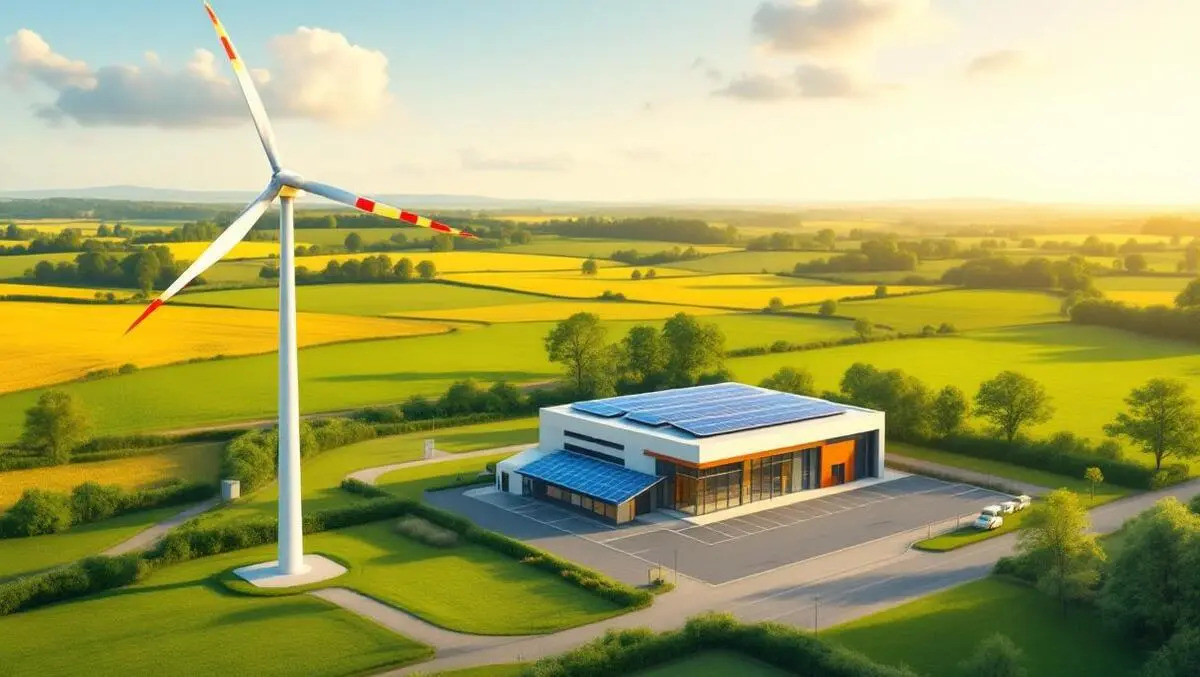Small-scale renewable energy generators in the UK can now sell electricity directly to businesses at scale following new regulatory changes.
The P442 rule change, put in place by Ofgem and Elexon, is being described by industry participants as a structural development that enables local energy producers such as community solar farms and wind projects to compete more effectively with major utilities. Under the updated framework, these projects can simplify the process of direct supply to business customers, opening new avenues for clean energy integration.
Levelling the field
Historically, direct supply from small-scale generators was an option in the market but had been hindered by the complexity and costs associated with matching supply and demand, as well as managing settlement processes. The requirements made the model inaccessible for those without substantial resources, meaning local projects often missed out on opportunities to supply power to businesses that sought renewable sources at competitive rates.
With the implementation of P442 and suitable technology to track and settle energy transactions, generators and customers now have a more practical way to engage in direct, licence-exempt supply agreements. Businesses are able to access renewable electricity at lower prices, while generators can secure better rates than those available on the wholesale market.
Role of technology
Enosi has been accredited as an Exempt Supply Notification Agent (ESNA) to facilitate these transactions. The company’s Powertracer platform is designed to automate the complex task of fine-grained energy matching, providing real-time tracking of supply and demand from multiple sites. This automation reduces the costs of administration and enables matching to occur between various small generators and customers simultaneously.
One challenge that has persisted in local energy trading is the lack of technology capable of accurately determining and settling what electricity is supplied and consumed between participating parties in real time. Enosi’s software is intended to address this by automating settlement obligations and feeding results directly into Elexon’s Balancing and Settlement Code (BSC) Systems. This process ensures compliance and transparency in transactions that previously required onerous manual work.
Pilot projects underway
Evolve Energy is the first supplier to adopt the Powertracer system via Enosi’s ESNA service. Through this partnership, small generators are matched with business customers, enabling both sides to benefit from cost savings and progress on sustainability goals.
“Enosi is all about making renewable energy accessible to everyone. This initiative makes it easier for small scale generators to find buyers for their energy, and get a better price for it. The other side of the coin is that businesses and communities can now tap into these local generators.”
Steve Hoy, Chief Executive Officer at Enosi, also commented on the immediate impact:
“We’re very pleased to be working with Evolve to continue to support the UK’s renewable energy transition; matching clean energy directly between generators and customers.”
Evolve Energy’s Chief Operating Officer, James Hall, spoke positively of the collaboration and its intended benefits for customers.
“We’re excited to be entering this new phase in our partnership with Enosi. We’re already seeing the value of Powertracer in our business and their accreditation as an ESNA is the logical extension of the software technology they have built.”
Cost impact
The new rule provides a mechanism for businesses to avoid several energy market levies that do not apply to direct supply arrangements. Estimates suggest that generators and their business clients could see reductions of up to GBP £60/MWh on their contracts due to these savings, though actual benefits will depend on contract specifics and market conditions.
Wider implications
Licence-exempt supply arrangements have theoretically existed in the UK for two decades, but their limited scope and technical complexity kept uptake low. The combination of the new regulatory approach and automation technology has the potential to broaden participation, according to industry observers.
Supporters argue that this change is not a government subsidy or incentive, but rather a reconfiguration of market mechanisms to enable clean energy to compete on its own merits. The approach could help bolster the business case for community and local generation, supporting both economic and environmental objectives as the UK moves towards its net zero targets.
Live, practical deployments of the direct supply model are now taking place, with stakeholders monitoring outcomes closely for potential expansion across the energy sector.
